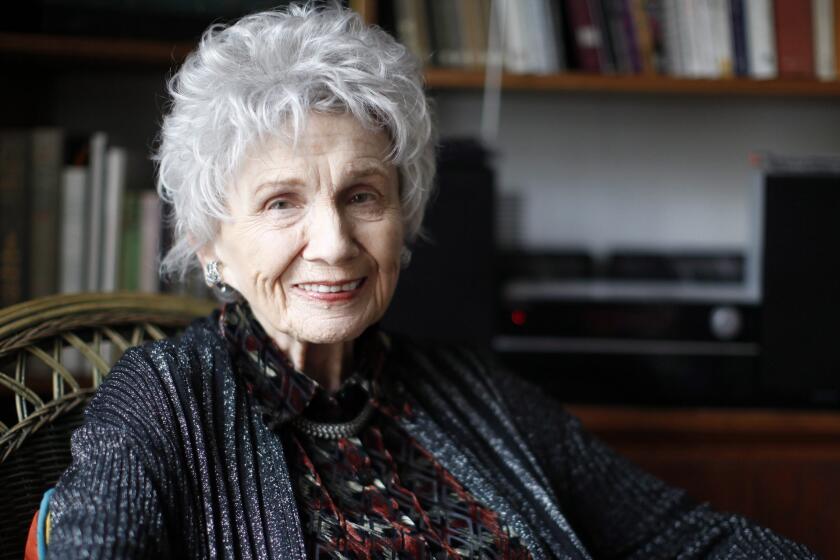Giving Voice to Unspoken Passions
Men are shadows in Chitra Banerjee Divakaruni’s “The Unknown Errors of Our Lives,” a collection of stories that reads less like separate dramas than like a brooding meditation on South Asian women. Men appear as busy husbands, rich entrepreneurs juggling lovers, adored sons treated like pashas by workhorse mothers. Men make pivotal decisions, some are caring and one is sexy with hard, brown nipples that remind his fiancee of apple seeds--but men remain in the background. The focus is on women, on the injustices of India’s sexual double standard that Indian women get to reckon with fully when they leave home, an experience that is like waking up to the knowledge that your life has been a nightmare. This vertiginous atmosphere is the air the author breathes.
Divakaruni, who has written two novels and an earlier story collection, immigrated to the United States from Calcutta in 1976, when she was 19, and 10 years ago founded Maitri, an organization that counsels South Asian women living in America about domestic violence and American racism.
Her stories take place between the rock of Indian tradition and the hard place of cultural dislocation--in one story a freeway road-rager spits at the narrator, “[Expletive deleted] Dothead, go home.” Some pieces are set in India, in which women who have returned for a visit alternately realize why they left and fell under the spell of puffed bread and family embraces. A few tales are merely hangers for memories of childhood, though memory here, as in life, tends to be polemical, with details inscribed or deleted to make the desired point. And though Divakaruni chronicles the misperception of women by Indian culture, her narrators tend to gloss over the Indian servant class, whose members drift in and out of rooms while their discontents go unimagined.
Divakaruni’s writing reflects some of the stolid watchfulness of her heroines, who dive underground emotionally, lest their rage and frustration turn them into explosive devices. At her frequent best, though, she arranges bouquets of sensual detail and crisply etches unspoken passions.
In “The Love of a Good Man,” about a father’s visit to the grown daughter he abandoned in childhood, the narrator recalls that pivotal departure in a taxi: “[M]y father’s whole body leaned forward in terrible eagerness, as though he were a patient discharged from a hospital he never thought he’d live to leave.” In “Mrs. Dutta Writes a Letter,” about the clash between a traditional Indian mother-in-law and her Americanized daughter-in-law, Divakaruni split-screens the pride the older woman takes in her cooking with the younger woman’s disgust that her house smells of grease.
In the most powerful story, “The Blooming Season for Cacti,” social landscape and personal drama are seamlessly woven together. Mira, a young Indian woman, tries to get lost in California, like so many others, wishing for a clean slate under blazing light. She wants to burn away memories of riots in Bombay, between Hindus and Muslims, which cost her mother’s life. She gets a job in a Sacramento restaurant, owned by a friend of her brother’s, a man kind enough to help her and ruthless enough to lure Radhika from India, promising her marriage in the States though he already has a wife. The story is about the relief the women find in each other’s company.
In the wide-eyed way of visitors from another planet, they picture themselves standing alone in a desert, apart from the protection of men. The image is so intoxicating it sweeps them through an erotic door. With the fortification of samosas and jabakusum hair oil, they let the new freedom seep into their pores, but Divakaruni is too knowing to stop the tale there. With so many choices come new anxieties and feelings of strangeness, a brew that is beautifully observed.
More to Read
Sign up for our Book Club newsletter
Get the latest news, events and more from the Los Angeles Times Book Club, and help us get L.A. reading and talking.
You may occasionally receive promotional content from the Los Angeles Times.






